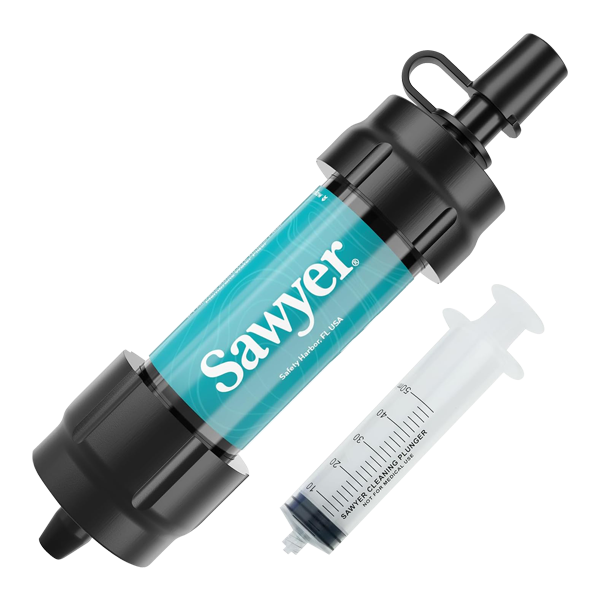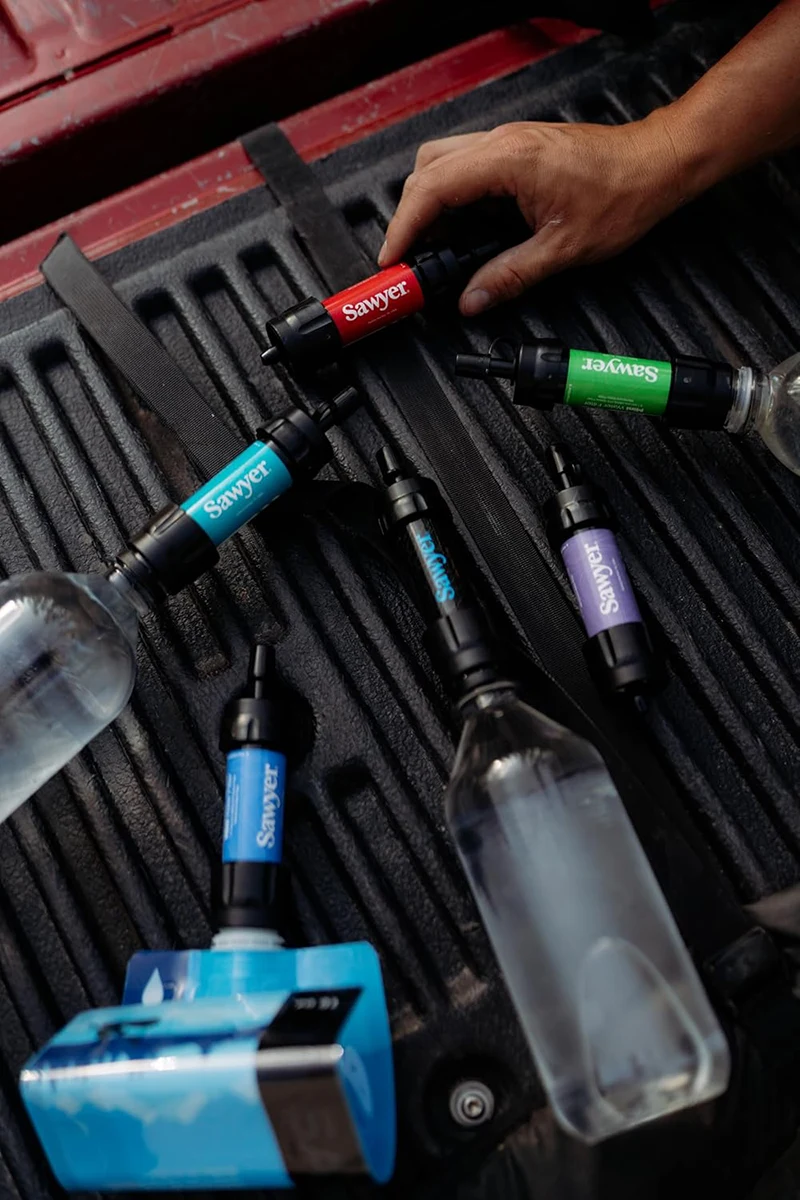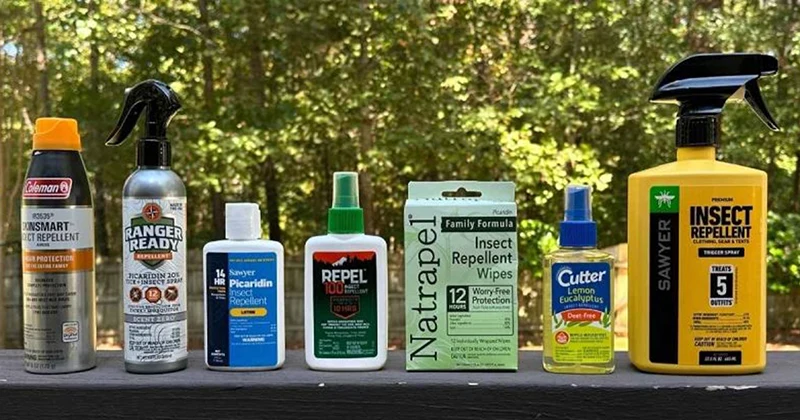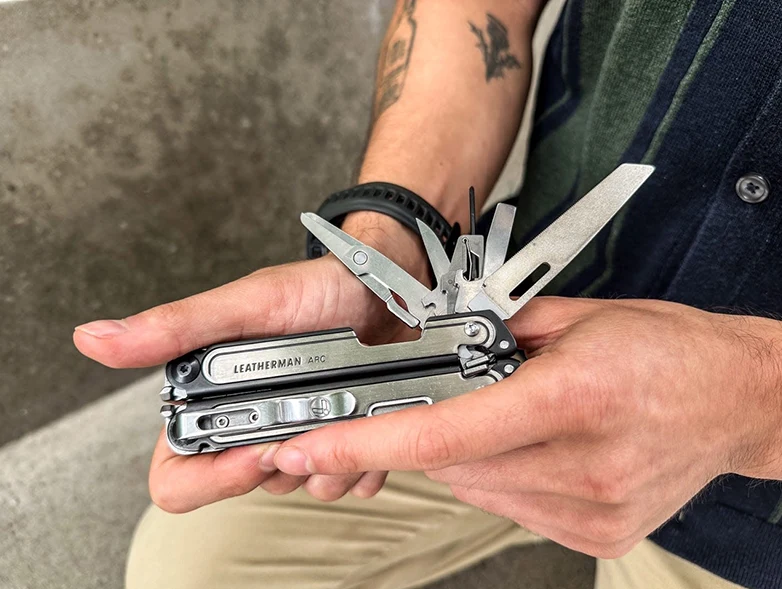Bustle: The 7 Best Non-Deet Mosquito Repellents
Bustle: The 7 Best Non-Deet Mosquito Repellents

Bustle: The 7 Best Non-Deet Mosquito Repellents
YouTube video highlight
A review of the seven best non-deet mosquito repellents
Read more about the projectBustle: The 7 Best Non-Deet Mosquito Repellents
If you've ever emerged from a long (or even short) amount of time outdoors with those dreaded red, round, and super itchy bug bites all over your body, you're probably on the hunt for a better mosquito repellent. Typically, deterring those pesky insects has meant relying on products with that token — and very pungent— chemical DEET, but there are other viable options. Luckily, the best non-DEET mosquito repellents work just as well at keeping the bugs from feasting on your blood.
When shopping for a non-DEET formula, here's what to look for in the ingredient list:
- Picaridin: This is a synthetic molecule that mimics a compound that's found in black pepper plants. It's odorless and essentially works by disguising your smell, making you unrecognizable to mosquitoes as potential prey. Studies have shown that it's just as effective against mosquitos as DEET when used in a concentration of 20%, so it's one of the most proven swaps you'll find.
- Oil of Lemon Eucalyptus (OLE): Though it sounds like an essential oil, it's not. OLE is actually a naturally occurring compound extracted from the eucalyptus tree. It can be found in repellents in both natural and synthetic forms (where it's referred to as PMD) and is the only plant-based ingredient registered as a safe and effective repellent by the Environmental Protection Agency (EPA).
- Allethrin and Permethrin: Both of these are synthetic versions of chrysanthemum extracts and are often found in repellents that are not absorbed directly onto the skin. Allethrin is especially good for using in lanterns in patios and outdoor spaces, while permethrin-treated garments will keep you mosquito-free through dozens of washes.
- Essential oils: In terms of all-natural repellents, you'll find that essential oils like citronella or geranium are popular choices. Some studies have shown citronella "is as effective dose for dose as DEET," but because of its rapid rate of evaporation, it's not nearly as long-lasting. In addition, when applied directly to the skin, essential oils may cause allergic reactions. So it's best to use this form of bug protection for shorter times outdoors and in a less direct way, like with a bracelet.
Whether you're looking for a spray, lotion, or a colorful, fun cuff your kiddos will love, one of the best non-DEET mosquito repellents below will keep you happily bite-free without the stink.
See the full guide by Masha Vapnitchnaia on Bustle's website here.
Bustle: The 7 Best Non-Deet Mosquito Repellents


Bustle: The 7 Best Non-Deet Mosquito Repellents
If you've ever emerged from a long (or even short) amount of time outdoors with those dreaded red, round, and super itchy bug bites all over your body, you're probably on the hunt for a better mosquito repellent. Typically, deterring those pesky insects has meant relying on products with that token — and very pungent— chemical DEET, but there are other viable options. Luckily, the best non-DEET mosquito repellents work just as well at keeping the bugs from feasting on your blood.
When shopping for a non-DEET formula, here's what to look for in the ingredient list:
- Picaridin: This is a synthetic molecule that mimics a compound that's found in black pepper plants. It's odorless and essentially works by disguising your smell, making you unrecognizable to mosquitoes as potential prey. Studies have shown that it's just as effective against mosquitos as DEET when used in a concentration of 20%, so it's one of the most proven swaps you'll find.
- Oil of Lemon Eucalyptus (OLE): Though it sounds like an essential oil, it's not. OLE is actually a naturally occurring compound extracted from the eucalyptus tree. It can be found in repellents in both natural and synthetic forms (where it's referred to as PMD) and is the only plant-based ingredient registered as a safe and effective repellent by the Environmental Protection Agency (EPA).
- Allethrin and Permethrin: Both of these are synthetic versions of chrysanthemum extracts and are often found in repellents that are not absorbed directly onto the skin. Allethrin is especially good for using in lanterns in patios and outdoor spaces, while permethrin-treated garments will keep you mosquito-free through dozens of washes.
- Essential oils: In terms of all-natural repellents, you'll find that essential oils like citronella or geranium are popular choices. Some studies have shown citronella "is as effective dose for dose as DEET," but because of its rapid rate of evaporation, it's not nearly as long-lasting. In addition, when applied directly to the skin, essential oils may cause allergic reactions. So it's best to use this form of bug protection for shorter times outdoors and in a less direct way, like with a bracelet.
Whether you're looking for a spray, lotion, or a colorful, fun cuff your kiddos will love, one of the best non-DEET mosquito repellents below will keep you happily bite-free without the stink.
See the full guide by Masha Vapnitchnaia on Bustle's website here.
Bustle: The 7 Best Non-Deet Mosquito Repellents


Bustle: The 7 Best Non-Deet Mosquito Repellents
If you've ever emerged from a long (or even short) amount of time outdoors with those dreaded red, round, and super itchy bug bites all over your body, you're probably on the hunt for a better mosquito repellent. Typically, deterring those pesky insects has meant relying on products with that token — and very pungent— chemical DEET, but there are other viable options. Luckily, the best non-DEET mosquito repellents work just as well at keeping the bugs from feasting on your blood.
When shopping for a non-DEET formula, here's what to look for in the ingredient list:
- Picaridin: This is a synthetic molecule that mimics a compound that's found in black pepper plants. It's odorless and essentially works by disguising your smell, making you unrecognizable to mosquitoes as potential prey. Studies have shown that it's just as effective against mosquitos as DEET when used in a concentration of 20%, so it's one of the most proven swaps you'll find.
- Oil of Lemon Eucalyptus (OLE): Though it sounds like an essential oil, it's not. OLE is actually a naturally occurring compound extracted from the eucalyptus tree. It can be found in repellents in both natural and synthetic forms (where it's referred to as PMD) and is the only plant-based ingredient registered as a safe and effective repellent by the Environmental Protection Agency (EPA).
- Allethrin and Permethrin: Both of these are synthetic versions of chrysanthemum extracts and are often found in repellents that are not absorbed directly onto the skin. Allethrin is especially good for using in lanterns in patios and outdoor spaces, while permethrin-treated garments will keep you mosquito-free through dozens of washes.
- Essential oils: In terms of all-natural repellents, you'll find that essential oils like citronella or geranium are popular choices. Some studies have shown citronella "is as effective dose for dose as DEET," but because of its rapid rate of evaporation, it's not nearly as long-lasting. In addition, when applied directly to the skin, essential oils may cause allergic reactions. So it's best to use this form of bug protection for shorter times outdoors and in a less direct way, like with a bracelet.
Whether you're looking for a spray, lotion, or a colorful, fun cuff your kiddos will love, one of the best non-DEET mosquito repellents below will keep you happily bite-free without the stink.
See the full guide by Masha Vapnitchnaia on Bustle's website here.






.png)

















































































































